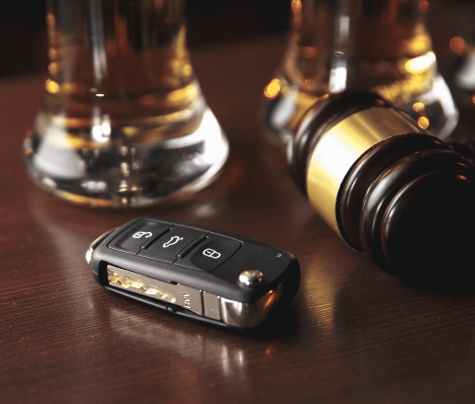
We all know how having records of criminal charges can potentially ruin your lives, especially if you are living in Texas. And let me tell you something: out of all these charges, the one that occurs most frequently is generally related to Texas DWI laws.
And you might think that it does not matter. You might think that it is a really minor and insignificant charge or conviction. But that’s really not the case!
You see, when you are in Texas, facing criminal charges even as a minor can get you into trouble later on in your life. They can create a lot of barriers to your personal and professional growth.
And that is not all. It can also limit your chances of future employment. Additionally, it can also restrict your housing options and other educational pursuits.
However, in case I have scared you enough already, just because you are convicted of a criminal offence, it does not mean that your life is over!
Hi. In today’s blog, this is exactly what I will be talking about. So, if you are looking for the ways to start your life afresh and clear all your conviction charges (yes, even the Texas DWI laws related), you have reached the right place.
So, keep reading this article till the end and thank me later!
What are Texas DWI Laws?
Before I begin to explain all the different ways in which you can clear your conviction charges, let me explain the Texas DWI laws a little. This might give you a clearer understanding of what charges you might face and how they can impact your life!
So, according to the Texas DWI laws, you might have to face charges of felony and misdemeanor if the police catch you driving a vehicle with a blood alcohol concentration level (BAC) of more than 0.08%.
And while you might think that this is even lower than other states where the BAC limit is 0.25%, let me tell you something more. The limit for commercial vehicles under the Texas DWI laws is 0.04%.
So, what are some of the charges that you might have to face against such a law?
Well, in case you were curious, you might have to face jail time, fines, and even get your license suspended.
Understanding the Impact of a Criminal Record
Individuals that are convicted of a criminal offence will have to live with the immediate consequences although all future hope is not lost.
Common Challenges for Individuals with a Criminal Conviction
The consequences of having a criminal record extend far beyond the initial punishment. Here are some of the most significant hurdles individuals face:
- Many employers conduct background checks and automatically disqualify candidates with criminal records, regardless of their qualifications or how long ago the offense occurred. This practice significantly reduces job opportunities and often forces individuals to accept lower-paying positions.
- Property managers and landlords frequently reject rental applications from individuals with criminal records, limiting access to safe and affordable housing options in desirable neighborhoods. This restriction can force people into less stable living situations.
- Colleges may reject enrollment due to a criminal record, and professional licensing boards typically have strict requirements regarding criminal histories, which impede career advancement in most professional fields of study.
Benefits of Clearing Your Record
Taking steps to clear your criminal record can transform your life in numerous ways:
- The ability to honestly answer “no” to criminal history questions on job applications, significantly expanding employment prospects and earning potential.
- Improved access to housing options, including better neighborhoods and more reliable landlords, creating stability for you and your family.
- Enhanced opportunities for higher education and professional licensing, opening doors to career advancement and personal growth.
The Legal Options for Clearing Your Criminal Record in Texas
Texans have several options to clear their criminal records. Be it through expungement, a record sealing or a pardon, being convicted of a criminal offence is not the end of the road.
Certain offenses such as DWI have specific exceptions such as the Texas DWI second chance law.
Expungement (Expunction)
Expungement, legally referred to as “expunction” in Texas, completely erases criminal records from public view.
When granted, all records of the arrest and prosecution are destroyed, allowing individuals to legally deny the existence of the expunged record.
The following situations typically qualify for expungement in Texas:
- Cases resulting in acquittal or dismissal of charges
- Arrests that never led to charges or convictions
- Pardoned offenses
- Certain misdemeanors committed as a minor
- Identity theft victims who have been wrongly arrested for someone else’s crime.
The expungement process requires careful attention to detail and strict adherence to legal procedures.
The basic steps include filing a petition, attending a hearing, and ensuring proper notification of all relevant agencies.
Non-Disclosure Orders (Record Sealing)
A non-disclosure order seals criminal records from public view while maintaining accessibility for law enforcement and certain government agencies. This option provides a middle ground when expungement is not available.
You may qualify for nondisclosure if:
- You successfully completed deferred adjudication
- The offense was not violent or sexual in nature
- You have satisfied all waiting periods
- You have no disqualifying criminal history
The application process for non-disclosure involved filing a petition with the court where your case was handled, paying required fees, and potentially attending a hearing to demonstrate eligibility.
Criminal Pardon
A pardon represents the ultimate form of forgiveness for a criminal offense. The governor can grant several types of pardons including:
- Full pardons restoring all civil rights
- Conditional pardons requiring specific obligations
- Pardons based on actual innocence
The application process is rigorous and is made to the Texas Board of Pardons and Paroles and requires:
- Detailed documentation of rehabilitation
- Letters of recommendation
- Evidence of positive contribution to society
- A compelling personal statement
Sealing Juvenile Records
A juvenile record may be eligible for sealing when the individual who committed the offence reaches adulthood and has met specific rehabilitation requirements.
The offense also should not have been violent or serious in nature.
Sealing juvenile records helps young adults start fresh by:
- Preventing childhood mistakes from limiting future opportunities
- Enabling honest responses on applications
- Protecting privacy during the transition to adulthood
How to Choose the Right Legal Option for Your Situation
Choosing the right legal representative may enhance the chance of having your criminal record cleared.
Key Factors to Consider When Choosing Legal Representation
When evaluating your legal options, consider the following:
- The specific nature of your offense, the best attorney will specialize in your specific offense.
- The time elapsed since the conviction or completion of sentence.
- Your current situation and future goals.
- The potential impact on employment and housing opportunities.
Consulting with a Legal Professional
Working with an attorney who is experienced in clearing criminal records can:
- Ensure you pursue the most appropriate legal remedy for your specific situation.
- Navigate complex paperwork and procedures effectively.
- Maximize your chances of success.
- Avoid costly mistakes or delays.
Taking the Next Step Forward
In conclusion, if you are planning to clear your criminal record or conviction history under the Texas DWI laws, there are a few things that you MUST be careful about. And that is mainly because of the different legal options and their specific requirements.
However, while it is true that the process might scare you a little, and it might feel a little daunting in the beginning, I can guarantee you that there are several benefits that will make it all worth it at the end!
Irrespective of whether you are trying to defend yourself through expungement, non-disclosure, pardons or even by sealing juvenile records, there are pathways available. And trust me when I say this: these things can help you move beyond past mistakes and create new opportunities.
However, do not try to do it all alone. It is best that you seek help from a professional legal expert who has a lot of experience in this area of law. They are the best ones who can help you by reviewing your situation and tailoring their legal approach accordingly.
Read Also:
- How a Criminal Defense Lawyer Can Protect Your Rights and Build a Strong Defense
- Understanding Your Rights: Navigating a Criminal Defense Case from Arrest to Trial
- How House Arrest Is Shaping Criminal Justice Reform



![Understanding The Pay Transparency Law Of Massachusetts [2026 Guide]](https://lawyersinventory.com/wp-content/uploads/2026/02/massachusetts-pay-transparency-law-100x100.png)







0 Reply
No comments yet.